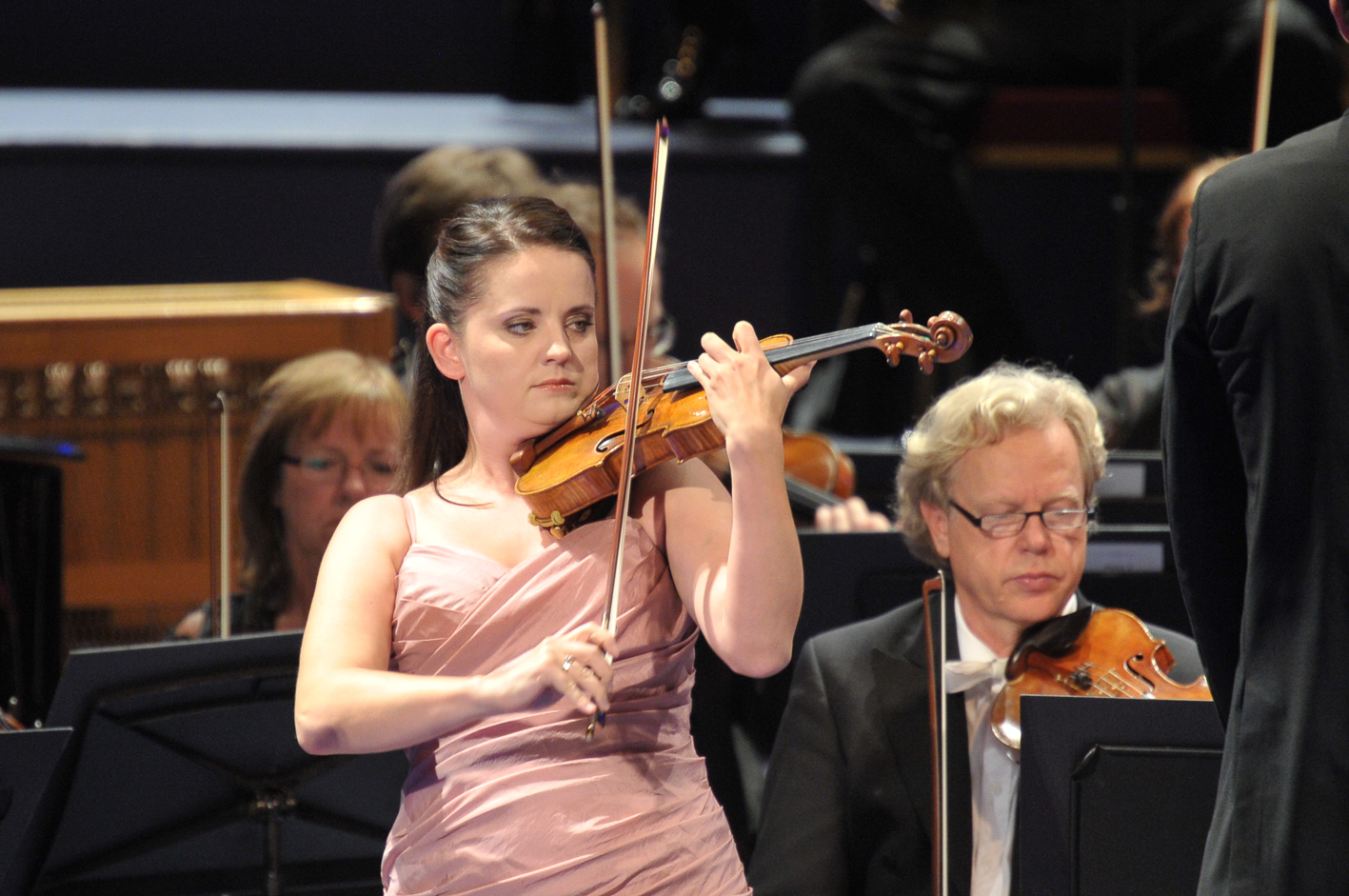The Oslo Philharmonic Orchestra made quite a splash with their Tchaikovsky symphony series under Mariss Jansons back in the 1980s. The watchwords then were freshness and articulation, a re-establishment of Tchaikovsky’s innate classicism - and so it was again as Vasily Petrenko stepped out as the orchestra’s new Chief Conductor. The opening of Tchaikovsky’s First Symphony sounded so light and articulate, so suggestive of clean, icy cold air, and the clarity that brings that the subtitle “Winter Daydreams” suddenly seemed a little vague.
When Petrenko’s poetic first clarinetist eased us into the folksy second subject there was no pulling back in tempo, no luxuriating (as is often the case) in the nostalgia of this new idea but rather a projection of unsentimental delight in its expressiveness. The woodwind playing throughout was exceptional and nowhere more so than at the start of the slow movement where the flute embellished oboe tune with songful bassoon counterpoint was limpid and nuanced. Silken cellos and then two and eventually all four horns swelled the melody from something intimate and personal to something universal. It was pretty much a model performance, vivid and immediate of rhythm and with moments of genuine magic - like the expectant hush before the finale’s main allegro (a super-contrast in tempo from the brooding introduction) and the mystical, almost Brucknerian, preparation for the coda. Interesting that Bruckner’s Fourth, “Romantic”, Symphony is on the menu for their second Prom.
 But after winter daydreams it was hothouse rapture as we entered the painterly domain of Szymanowski’s First Violin Concerto. Echoes of Kashchei’s enchanted kingdom and the Firebird taking flight resonated through the opening pages with the gifted Latvian violinist Baiba Skride (pictured right) announcing her presence through an upper register so ethereal and so true and so touched with ecstasy that it sounded like a figment of the imagination, a rarefied species among Szymanowski’s nocturnal chorus of bird-like woodwinds. The range of Skride’s colour was extraordinary and amply revealed in the cadenza where the earthiest, gruffest, colours were set alongside the highest-flown. She emerged from, hovered over, and was subsumed by the great orchestral washes, not so much a soloist more an integral part of the orchestral canvas.
But after winter daydreams it was hothouse rapture as we entered the painterly domain of Szymanowski’s First Violin Concerto. Echoes of Kashchei’s enchanted kingdom and the Firebird taking flight resonated through the opening pages with the gifted Latvian violinist Baiba Skride (pictured right) announcing her presence through an upper register so ethereal and so true and so touched with ecstasy that it sounded like a figment of the imagination, a rarefied species among Szymanowski’s nocturnal chorus of bird-like woodwinds. The range of Skride’s colour was extraordinary and amply revealed in the cadenza where the earthiest, gruffest, colours were set alongside the highest-flown. She emerged from, hovered over, and was subsumed by the great orchestral washes, not so much a soloist more an integral part of the orchestral canvas.
It really is the darkest figures in the orchestra that get to be stars here
The more I hear Rachmaninov’s Symphonic Dances the more convinced I am that this is his true masterpiece - indeed one of the finest orchestral works of the last century. Its atmosphere - again nocturnal with an extraordinary range of colours among the lower woodwinds - is so special, haunting and intoxicating, and Petrenko undoubtedly had a nose for it. I’m thinking of the touch of desperation in the trenchancy of the first dance but more particularly of the profound melancholy of the alto saxophone in wistful alliance with cor anglais and bassoons. Petrenko’s avoidance of over luxuriating in the strings’ pick-up of the melody did not violate the truth of it and that ravishing remembrance of the First Symphony in the closing bars really tugged at the heart strings without seeking to do so.
The central waltz was heavy with intimations of mortality and the return of the theme was heart-stoppingly ghostly with its soulful bassoon counterpoint. It really is the darkest figures in the orchestra that get to be stars here. Look at the bass clarinet at the heart of the finale’s danse macabre. If I had the tiniest reservation about Petrenko and the orchestra’s marvelous showing here it had to do with control slightly inhibiting that last degree of excitement - particularly in those final pages where Rachmaninov is remorselessly pursued by his demons and the Dies irae thunders forth.
The questionable tam-tam resonance at the bitter end fell a little flat on account of the poor instrument which had none - and Petrenko was never going to stave off the applause as the death knell died away. I say “questionable”, by the way, because although the tam-tam has a crotchet while the rest of the orchestra has a quaver in the final bar, Rachmaninov omitted the words “laiser vibrer” over the part - which suggests to me a dramatic dampening of that pay-off note. Many conductors, including Petrenko, plainly don’t see it that way and the audience are too excited to care. Undoubtedly one of the best concerts of the season.















Add comment